The Best Foods To Eat for Your Brain
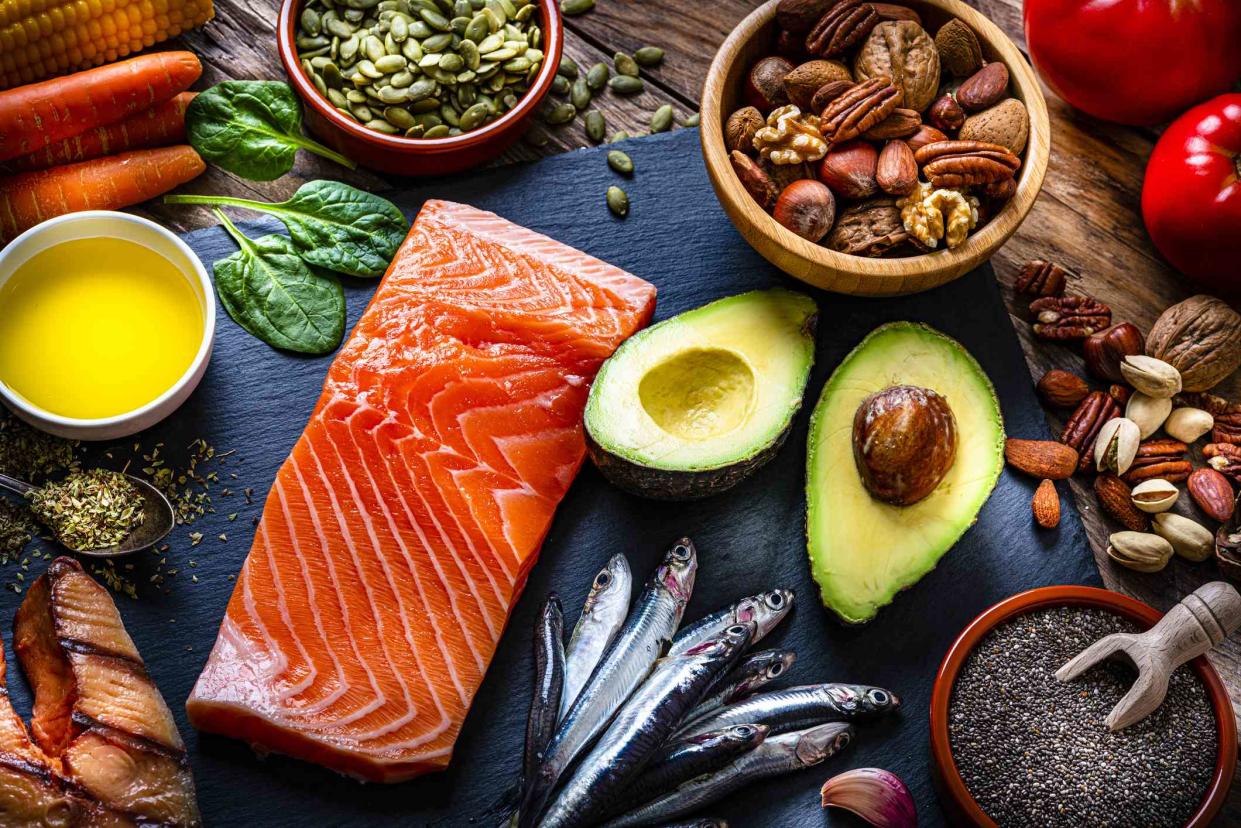
fcafotodigital / Getty Images
Medically reviewed by Simone Harounian, MS
The brain is the command center of the body, and nutrition plays a key role in keeping it operating at its best. It's one of the most energy-consuming organs, primarily relying on glucose from food to meet its energy requirements. However, optimal brain health requires a constant supply of nutrients like vitamins, minerals, antioxidants, and fatty acids.
This balance of nutrients supports energy production, cellular repair, and neurotransmitter synthesis, all of which are essential for memory and cognitive function. While no one food can do it alone, some of the best foods for brain health can work together to support optimal brain health and help protect against neurodegenerative diseases.
Here are the 10 best foods for a healthy brain.
1. Fatty Fish
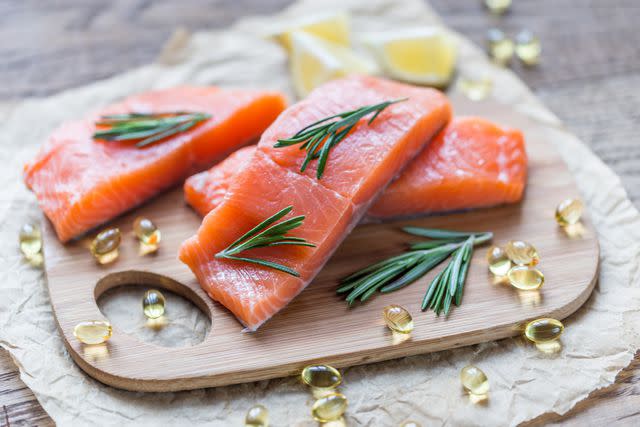
AlexPro9500 / Getty Images
Fatty fish, such as salmon, mackerel, and herring, are powerful brain foods. They're excellent sources of omega-3 fatty acids like eicosapentaenoic acid (EPA) and docosahexaenoic acid (DHA), which are fundamental for brain health. These fatty acids have been linked to increased brain learning, memory, cognitive well-being, and blood flow.
Unfortunately, the body doesn't store omega-3s as efficiently as other fats, meaning there's limited storage for the brain to draw upon when needed. So, it comes as no surprise that the latest Dietary Guidelines for Americans recommend at least 8 ounces (oz) or two servings of seafood per week.
Omega-3 fatty acids found in oily fish can also help prevent the onset of neurodegenerative diseases like Alzheimer's disease. Research continues to show an association between fish consumption and a lower risk of dementia.
2. Leafy Greens
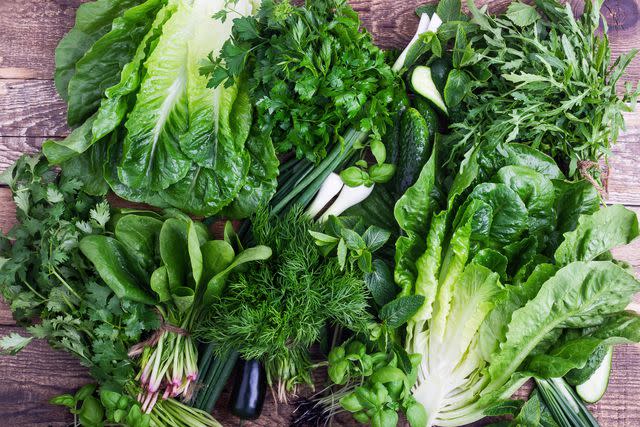
istetiana / Getty Images
Leafy green vegetables like spinach, collards, and kale contain many brain-healthy nutrients. They're packed with vitamin K, lutein, nitrate, and folate, which have been proven to slow cognitive decline associated with age.
The latest Dietary Guidelines recommend that adults consume 2.5 cups of vegetables daily, but most people fall short of that recommendation. Increasing your intake of leafy green vegetables can help you meet your nutrient needs while supporting brain health. While salads are an excellent way to consume leafy greens, there are many other ways to add this type of vegetable to a well-balanced diet. For example, you can add fresh greens to smoothies, pasta dishes, and grain bowls, to name a few.
3. Eggs

Jackyenjoyphotography / Getty Images
Eggs are incredibly versatile, adding flavor and nutrients to many classic culinary dishes. They're packed with nutrient-dense compounds that offer various health benefits, including benefits for the brain.
For example, eggs contain choline, which supports brain health throughout the lifespan. Choline is essential in brain development and a precursor to acetylcholine, an important neurotransmitter for cognitive function.
Eggs are also an excellent source of protein, as they contain all nine essential amino acids that the body cannot produce on its own. In addition to its many other roles in the body, research has found that adequate protein intake can help prevent cognitive decline over time.
4. Nuts
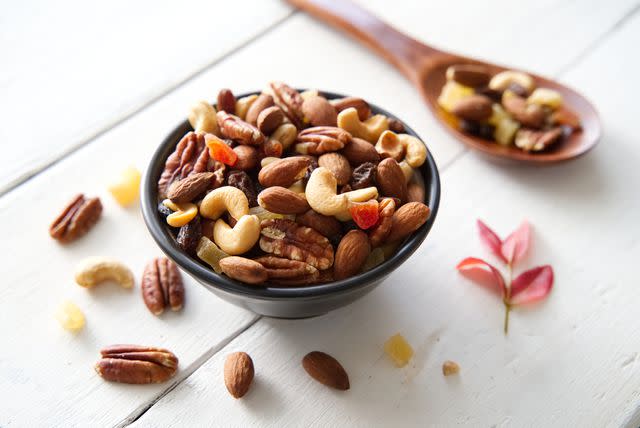
Jason Hashbarger / Getty Images
Including nuts in a balanced diet may benefit the brain and its long-term wellness. Nuts are an excellent source of healthy fats and antioxidants that promote good brain health, and studies have shown that a long-term intake of nuts can reduce the risk of cognitive decline in older populations. This is likely due to their composition, as they are a good source of many nutrients, including unsaturated fats, vitamins E and K, magnesium, copper, potassium, selenium, dietary fiber, and antioxidants.
Nuts can be enjoyed on their own or included in various recipes. Many people sprinkle them in salads, sauces, and whole grains to boost the nutritional profile of their dish. Nuts also add texture and flavor, enhancing the overall experience of the meal.
5. Berries
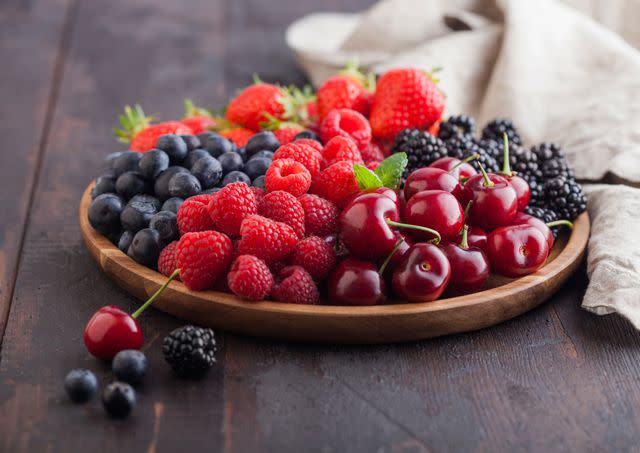
DenisMArt / Getty Images
Berries, such as strawberries, blackberries, and blueberries, are packed with antioxidants that play a critical role in maintaining brain health. They contain flavonoids, which give them their vibrant hue and help combat oxidative stress in the brain. Less oxidative stress means less inflammation in the brain, protecting against neurodegenerative disease and age-related cognitive decline.
Berries also contain high amounts of vitamins that can support cognitive function. Blueberries are rich in vitamin C, a potent antioxidant linked to improved cognition. Research highlights the purported benefits of berries for brain health and even recommends regular consumption. Studies have shown that adding berries to a brain-boosting diet may improve the speed at which information is processed in the brain.
Berries are a refreshing, brain-friendly treat at any time of the day. They can be enjoyed fresh, added to smoothies, sprinkled over a salad, or mixed into your favorite baked goods.
6. Coffee

Guido Mieth / Getty Images
Coffee, a beverage loved by many worldwide, has long been linked to various effects on brain health. Its primary active ingredient, caffeine, is a stimulant, boosting cognitive function. Caffeine increases the release of neurotransmitters that support mental performance and overall improved mood.
In addition to its caffeine content, coffee is rich in antioxidants. It's packed with bioactive compounds like flavonoids and phenolic compounds that can protect the body, including the brain, against oxidative stress.
Current research even suggests that high coffee consumption is associated with a lower risk of cognitive decline and may even be a protective factor against Alzheimer's disease.
7. Green Tea
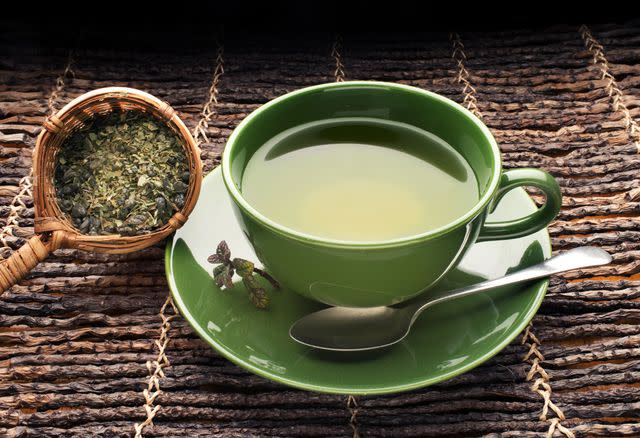
ATU Images / Getty Images
Those who don't drink coffee may search for another beverage with brain-boosting benefits. Green tea has been linked to positive effects on the brain, including improved psychopathological symptoms, cognition, and brain functions. Studies have shown that green tea drinkers may experience reduced anxiety, improved attention, and enhanced memory activation.
Green tea also contains the amino acid L-theanine, which has been linked to several health benefits, including improved mood, cognition, and anxiety-like symptoms. A warm cup of green tea can replace your morning coffee or be incorporated into various recipes. It can enhance the flavor and nutrition profile of breakfast foods, desserts, and meat marinades.
8. Turmeric
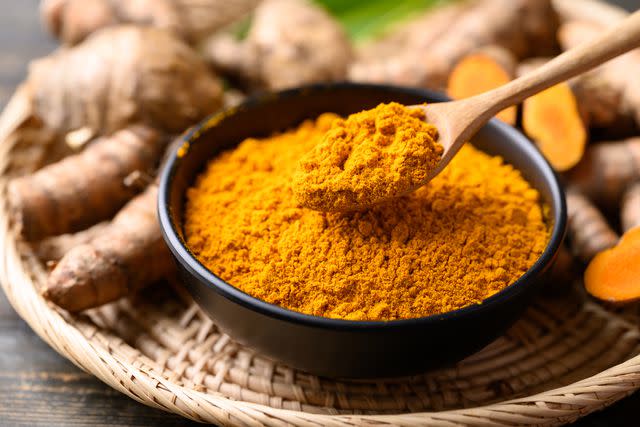
Nungning20 / Getty Images
Curcumin, the polyphenol isolated from turmeric, is a commonly used spice worldwide. It boasts a potent flavor and many health-promoting properties.
Curcumin possesses anti-oxidant, anti-inflammatory, anti-microbial, and anti-aging properties that may offer protection against some neurodegenerative diseases. When used in conjunction with medical treatment, it may also improve depression and anxiety symptoms.
Turmeric is a bold spice with an earthy, sweet taste. Most recipes only call for a small amount, so many people rely on turmeric supplements to mimic the amount consumed in most research studies. A registered dietitian (RD) or nutritionist can discuss how much you need to consume based on your medical history.
9. Dark Chocolate

Capelle.r / Getty Images
Dark chocolate contains many neuro-empowering compounds like caffeine, flavonoids, and other antioxidants. Research has shown that regular intake of 85% dark chocolate can improve overall mood and gut microbial diversity, suggesting that it may positively affect the gut-brain axis.
Dark chocolate can be a delicacy on its own. But if you don't care for its bittersweet taste, you can disguise its flavor by adding it to other foods. Dark chocolate makes an excellent topping for yogurt parfaits, ice cream desserts, and baked goods.
10. Avocado
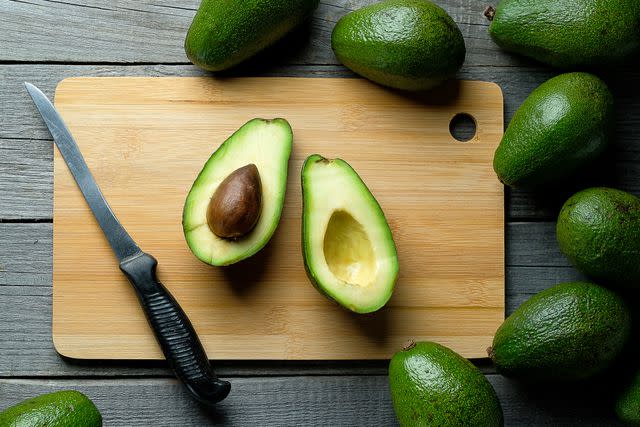
Aleksandr Zubkov / Getty Images
Avocados are a nutritional powerhouse, offering many benefits for the brain. They're rich in monounsaturated fats, providing their creamy texture and supporting healthy blood flow crucial to brain function. They're also packed with antioxidants that have neuroprotective effects.
Researchers have discovered a link between the bioactive compounds in avocados and the prevention of various neurodegenerative diseases, meaning avocados may help prevent Alzheimer's and Parkinson's diseases.
Avocados also contain vitamin E, an antioxidant that helps protect the brain from damage caused by oxidative stress. Studies have found that vitamin E, whether consumed or supplemented, may promote healthy brain aging and slow cognitive decline.
Lastly, avocados are known for their folate content, with one medium-sized Haas avocado providing 30% of the recommended daily value. B vitamins, including folate, are essential for brain health across all ages.
Other Ways to Protect Brain Health
There isn't a one-size-fits-all way to maintain optimal brain health. However, science continues to highlight several lifestyle factors that, when combined with a nutritious diet, can promote cognitive health. These include:
Regular physical activity: Regular exercise promotes healthy blood flow to the brain.
Mental stimulation: Keeping your brain active with various challenges can maintain cognitive function and promote neuroplasticity. Puzzles, games, and hobbies that require cognitive effort can all supply mental exercise.
Adequate sleep: Sleep is essential for brain health, as it allows the brain to rest and repair. The average adult needs 7-9 hours of sleep per night to support overall brain health.
Stress management: Stress management can help mitigate the negative effects that chronic stress has on brain health. Mindfulness, meditation, yoga, and deep breathing exercises are viable ways to reduce stress and promote good brain health.
Social engagement: Social connections and meaningful interactions with friends, family, and the surrounding community can stimulate the brain and reduce the risk of cognitive decline.
A Quick Review
Brain health is essential to overall health, and dietary intake can be an influential factor in optimizing, cognition, memory, and processing speed. There is no one food that magically supports brain function, but a balance of healthy food rich in healthy fats, amino acids, vitamins, and minerals can maximize the brain's biological processes.
Of course, nutrition is not the only factor, as physical activity, sleep patterns, stress management, and social interactions can also play a role in optimizing brain strength. Your doctor can help you navigate to many lifestyle choices that impact cognitive function.
For more Health.com news, make sure to sign up for our newsletter!
Read the original article on Health.com.
